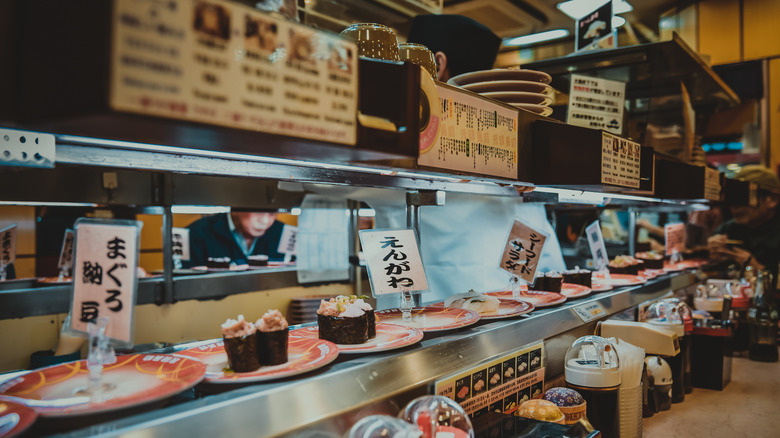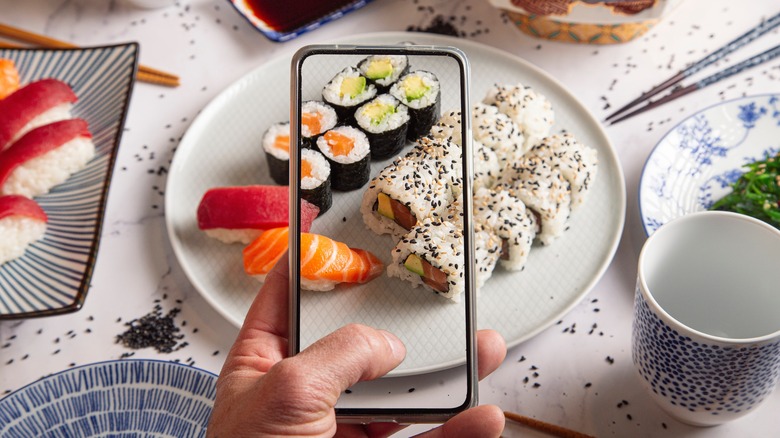Sushi 'Terrorism' In Japan Is Having A Costly Impact On Restaurants
The birthplace of ramen, miso soup, and tempura, Japan has contributed its fair share of iconic food to the culinary landscape. Towering above all other Japanese dishes, sushi remains the jewel in the crown. If you wish to travel to Japan to get a truly authentic taste of this cuisine, you may come across Japan's unique kaitenzushi (conveyor belt sushi) restaurants. The less expensive and more convenient alternative to a more formal sushi restaurant, conveyor belt sushi offers plate after plate of nigiri, sashimi, and hand rolls, on a—literally—revolving basis. It's a delightful part of the modern Japanese sushi scene—and internet pranksters are currently trying to ruin it.
In today's latest news edition of "why we can't have nice things," meet sushi "terrorism," a TikTok trend that's rewarding Japanese teens for contaminating conveyor belt sushi seeing viral fame. And, as if we didn't have enough to deal with in this time of pandemic paranoia, it's financially hurting one of Japan's most beloved food industries, the kaiten restaurant.
A troublesome TikTok trend
Let's break down this new and terrible TikTok trend. Japan Times notes that this "sushi terrorism" has its roots in "baito tero," a term that roughly translates to part-time job terrorism, and refers to a viral movement of Japanese influencers posting videos of themselves misbehaving in restaurants and convenience stores. This particular incarnation of the trend focuses on attacking—i.e. licking and slathering wasabi on conveyor belt sushi and accompanying condiments as Vice World News' TikTok channel reveals.
Unsurprisingly, the consequences of these pranks go beyond ruining a few plates of sushi. According to Fortune, this recent wave of social media hijinks has caused the sushi conveyor belt restaurant chain Sushiro to take a dip in both sales and the stock market. According to MarketWatch, Sushiro's parent company, Food & Life Companies Limited's stock has fallen roughly 100 yen just this past week because customers can't trust that clout-hungry teens haven't licked the cycling plates of sushi.
In response, Fortune says Sushiro is trying to up its sushi security, installing acrylic screens over certain segments of the sushi belts and only supplying utensils and condiments upon request. Other sushi chains are taking a more hard-nosed approach. Both Hama-sushi and Kura Sushi are planning to prosecute anyone who contaminates their food. Kura Sushi has installed new cameras above their conveyor belts to aid in their quest for justice.
Here's hoping this dies out before the conveyor belt sushi trade loses its most fundamental feature: the public's trust.

